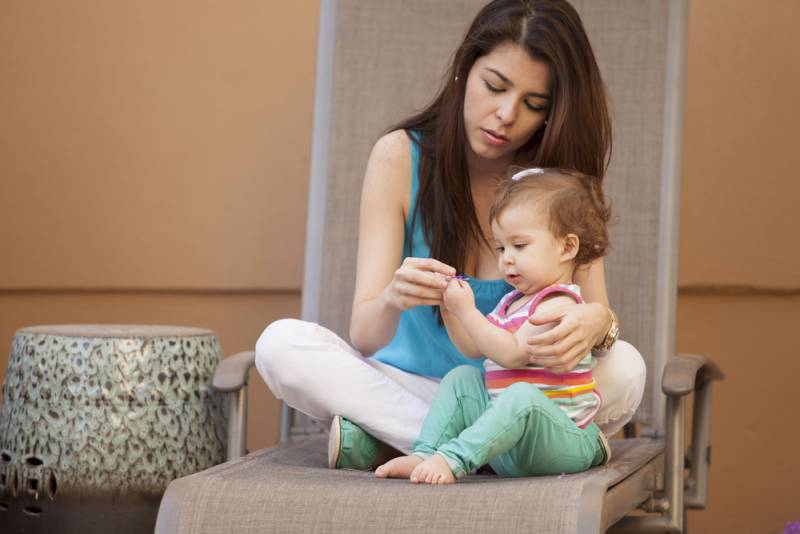What are the different types of childcare?

For most families organising childcare for their baby will be a reality at some stage. The childcare minefield is an area a lot of new parents have not considered prior to baby’s arrival, and when it comes time to make the decision of who will look after your little one, it can be a very daunting experience.
When organising childcare for your baby it is important to look at what is most important to your family and discuss what your needs are. For example, do you need daily care? Or just a few hours every now and again? Do you need access to government benefits to make childcare affordable for your family? What sort of environment do you think will most benefit your baby? It is also important to be as organised as possible as some care providers will have wait lists for openings and it may take you a while to find a provider that you feel is a good fit for your family.
To help make this decision, we have put together a number of childcare options below:
Long Day Care (Childcare Centre)
Probably the most widely known form of care, Child Care Centres commonly have set operating times (for example 6am-6pm) and a child is generally booked in on a permanent basis, attending the centre on the same days/hours each week. The bulk of Long Day Care Centres are approved for government child care benefits, meaning eligible parents may be able to claim back on fees which could help keep care affordable.
As childcare centres are usually purpose built, children will have plenty of fun and educational toys to keep them entertained as well as a designated nap area. To allow for socialisation with other children, childcare centres are typically sectioned in to age groups, for example a baby room for children 3 – 15 months old, a toddler room for children from 15 months – 3 years and so on.
Although this can be one of the more expensive forms of childcare many Long Day Care centres include benefits smaller providers may not such as meals and/or nappies for the day.

Family Day Care (or FDC)
For those seeking a smaller, more familiar setting, Family Day care could be a good choice. FDC is a great choice for families who need a more flexible level of childcare whilst a majority of providers are still approved for government child care benefits. Providers may offer full day care, part time care, casual care and in some cases, weekend and overnight care.
FDC providers generally operate out of their home which gives children a familiar and comforting environment and enables them to bond with one care giver. Providers are also conveniently located with most families being able to find a provider close to home.
Compared to a Long Day Care Centre, FDC’s also operate with smaller numbers, depending on your state of residence, it is not uncommon for there to be a maximum of 4 children to 1 care provider. It can also be a more affordable choice with the ability to book in part time hours and is good for families who would like more input in children’s food choices as families are generally required to provide food, snacks and nappies for the day.

In-home Care
In-home care operates much in the same way as Family Day Care however the care provider will come to the child’s place of residence. It is not a largely accessed form of care and can be quite expensive as government benefits are only offered in extenuating circumstances. For instance, you may be eligible for in home care if you are caring for 3 or more children who are not yet old enough to attend school or if there is a no other suitable form of care offered, for example a child that lives in a very remote area.
Occasional Care (OCC)
Occasional child care, as the name suggests, is perfect for families who do not always require care for their children but may sporadically need a helping hand. Many Occasional Care providers operate overnight and on weekend which can be very helpful for families who have shift workers or unpredictable hours, there is also the benefit that you are only charged for the hours your child is in care and a child can be booked in with short notice in case of an emergency or change of plans.
Outside School Hours Care (Before and After School care)
Outside school care is great for working parents of school aged children who may need to drop or pick up children outside of school hours. This type of care is usually provided at the school (but can be at a nearby community hall, child care centre etc. ) but run by an outside organisation, children are usually provided with a snack and indoor or outdoor activities to keep them busy until school starts or they are picked up.
Most of these services are eligible for the childcare benefits so can be an affordable choice. Care is usually offered for a few hours either side of school times. And can be available on school holidays as well as student free days.
Au Pairs
An Au Pair is a live-in care provider. This can be a great choice for parents wanting to expose their children to different cultures as Au Pair’s come from overseas destinations to care for your children, instead of the usual a daily cost of other types of care, an Au Pair is provided with accommodation, food and generally a weekly allowance to care for your child and can sometimes help out with light housework also. If you have plenty of spare space in your home and require full time care with help available at all times, an Au Pair could be a great fit for your family!

Nanny
Similar to in home care, a nanny comes to the child’s residence. There is no government benefit for this style of care so it can be a more expensive route. Nannies can be hired in a live in or live out basis and can be helpful for families who need more flexibility with care hours. It’s also a great option for families who would prefer their child to remain in their familiar home environment with consistent care from one provider. Read on how to find the right nanny for your child here.
Babysitters
Babysitters are ideal for one of occasions where parents may need care for only a few hours. Generally babysitters are paid an hourly rate for the time required and will come to the child’s place of residence, like Nanny’s and Au Pair’ no government benefits are available with this service.
This can be a great option for families that need very occasional care in the home and is a great option to use for night time events to keep with a child’s routine. One thing to keep in mind is some babysitters will have a minimum booking time (for example 2 hours) so be sure to suss this out prior to making a booking.

Grandparents
Who better to leave your child with than your own parents? Grandparents can be a fantastic child care choice if you have this option, your baby will feel safe and secure with someone they know and you will also feel completely at ease.
Depending on your parents age, looking after your baby full time could be a very big ask so it is important to have an open discussion ensuring they feel capable and comfortable being a caregiver. For families on a tight budget this can be an excellent choice as there are no specific fees and you can provide your babies food and nappies.

When it comes down to it, childcare is a very personal choice and what works for some will not work for all, it is important to consider the pros and cons of all the available types of care and see what is best suited to you and your family.


